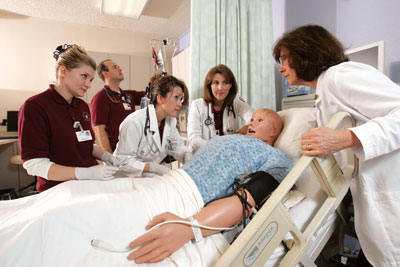When you are pursuing college, you will have many options on what career you will take. You could become an engineer, a chef, an attorney, a photographer etc., depending on what field you most likely see yourself in the future. But if you want to have a career in the health care field, then you could enter a field that has become desperate for candidates: nursing.
Nursing is an excellent choice for any students who are interested in health care. Opportunities are growing for nurses faster than qualified individuals can fill the openings, which virtually ensure your employment once you graduate. According to the U.S. Department of Labor, nursing is the fastest growing profession in the economy. There is also a projected shortage for nurses, currently and in the years to come. The estimates of the U.S. Healthcare Resources and Services Administration (HRSA) state that the country will need several hundred thousand more nurses by year 2020. This shows how important nurses will be and how large the opportunity is for them.
Nursing is a noble profession and it positively affects individuals in the community. When you are a nurse, you have the opportunity to provide care for infants, children, adults and elders to avoid or prevent diseases or to help patients recover from their illnesses. Nurses actually compose most of the healthcare work force and have diverse work settings.
Nurses can either work on hospitals, heath clinics, care facilities, home health agencies, or schools. Advancing your studies is possible in nursing. You can pursue nursing education at the graduate levels to advance your skills and earn more knowledge. Salaries are not an issue for nurses. Due to the accuracy and the efforts offered by nurses, they need proper compensation. The growing need for nurses also helps in the increase of nurses’ salary. But, for nurses who work for the love of the services they rendered, salary is just a bonus.
